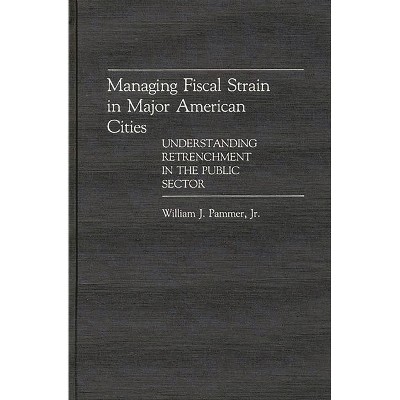Sponsored

Partisanship and the Birth of America's Second Party, 1796-1800 - (Contributions in Political Science) by Matthew Q Dawson (Hardcover)
In Stock
Sponsored
About this item
Highlights
- Between 1796 and 1800, Americans truly developed the forms of government that are recognized and continued today.
- About the Author: MATTHEW Q. DAWSON is currently assigned at Fort Sill, Oklahoma.
- 264 Pages
- History, United States
- Series Name: Contributions in Political Science
Description
About the Book
Between 1796 and 1800, Americans truly developed the forms of government that are recognized and continued today. This book examines the development of the two-party system, relationships between foreign and domestic affairs, and most importantly, the successes of the French Party in the light of the Quasi War, legal persecutions, and through Federalist popularity and bumbling. The leaders of the French Party were successful men committed to their vision of America's future. Even John Adams, a leading Federalist, successfully pursued his own course of action; his sacrifice stands as a remarkable example for political leaders today.
Federalist leaders were, however, ultimately unable to harness previous success and to unite varied agendas to maintain their leadership in the new century. Although a majority decried party politics, in theory or in commentary, Americans failed and continue to fail at running a government in a bipartisan manner. Even Thomas Jefferson, a leading Republican, failed to escape the grasp of partisanship and the politics of opportunity. These developments would foreshadow current political practices and the use of foreign affairs to support domestic agendas. Bringing together personality, structure, and practical measures of nation building, this work proves that the more things change, the more they remain the same.
Book Synopsis
Between 1796 and 1800, Americans truly developed the forms of government that are recognized and continued today. This book examines the development of the two-party system, relationships between foreign and domestic affairs, and most importantly, the successes of the French Party in the light of the Quasi War, legal persecutions, and through Federalist popularity and bumbling. The leaders of the French Party were successful men committed to their vision of America's future. Even John Adams, a leading Federalist, successfully pursued his own course of action; his sacrifice stands as a remarkable example for political leaders today.
Federalist leaders were, however, ultimately unable to harness previous success and to unite varied agendas to maintain their leadership in the new century. Although a majority decried party politics, in theory or in commentary, Americans failed and continue to fail at running a government in a bipartisan manner. Even Thomas Jefferson, a leading Republican, failed to escape the grasp of partisanship and the politics of opportunity. These developments would foreshadow current political practices and the use of foreign affairs to support domestic agendas. Bringing together personality, structure, and practical measures of nation building, this work proves that the more things change, the more they remain the same.Review Quotes
.,."this book will strengthen the case for the impact of outside influences on United States politics in the 1790s, providing some fresh perspectives in support of a legitimate thesis..."-Journal of the Early Republic
?...this book will strengthen the case for the impact of outside influences on United States politics in the 1790s, providing some fresh perspectives in support of a legitimate thesis...?-Journal of the Early Republic
?Anyone interested in early U.S. government, or living historians wanting to advance their knowledge of the time period to better their impression, should consider securing this book. There is a wealth of information here for Rev War and 1812 reenactors to bring forth to their audiences beyond military history?-Smoke & Fire News
..."this book will strengthen the case for the impact of outside influences on United States politics in the 1790s, providing some fresh perspectives in support of a legitimate thesis..."-Journal of the Early Republic
"Anyone interested in early U.S. government, or living historians wanting to advance their knowledge of the time period to better their impression, should consider securing this book. There is a wealth of information here for Rev War and 1812 reenactors to bring forth to their audiences beyond military history"-Smoke & Fire News
About the Author
MATTHEW Q. DAWSON is currently assigned at Fort Sill, Oklahoma./e After teaching at the United States Military Academy, he attended the Army's Command and General Staff College in Kansas.Shipping details
Return details
Trending Non-Fiction











